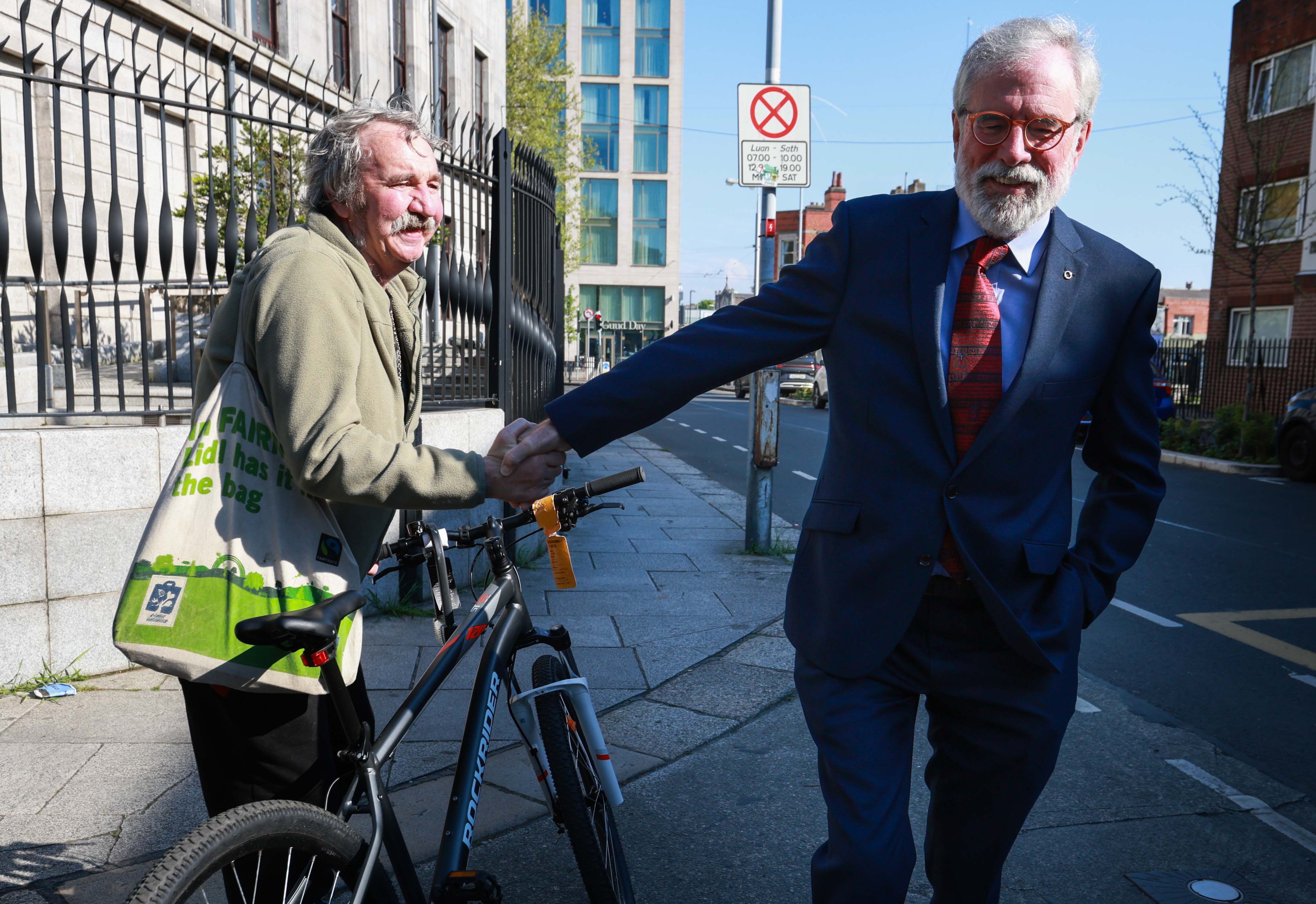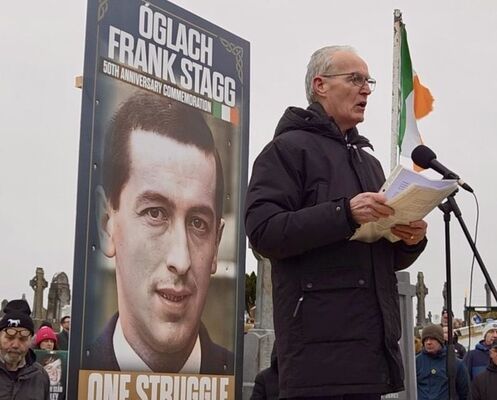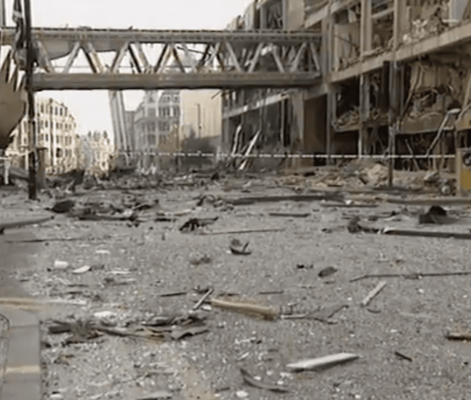THE success of my case against the British Broadcasting Corporation is an important and very significant breach of that institution's monopoly on how it broadcasts ‘news’, especially in Ireland.
As I said outside the Four Courts, I took this case to put manners on this institution. I stand over that comment. The British Broadcasting Corporation is supposed to be a public service provider. It is paid from public funds. It upholds the ethos of the British state in Ireland but it should be publicly accountable for its broadcasting content. It rarely is. That’s what the court case did. That’s what the jury did. The BBC lost. Fair journalism was a victor not a loser. But only if the lessons are learned and acted on.
When the case began six weeks ago the BBC’s legal strategy was evident very quickly. Their narrative was that pursued by successive British and Irish governments for years. They blamed everything during the conflict on republicans and, by extension in this trial, on me.
The BBC lawyers embarked on a Jesuitical presentation of the case that tried to convince the jurors that the words broadcast and published by the BBC that I had sanctioned the murder of Denis Donaldson, did not in fact mean that I sanctioned the murder of Denis Donaldson. They were, they said, not defending the truth of the accusation. They claimed they were defending their journalism which they claimed was fair and reasonable and in the public interest and made in good faith.
They concluded their case by trying to exert moral pressure on the jurors by spuriously claiming that a defeat for the BBC would be a blow to freedom of speech and a setback to victims.
In the end the jury didn’t buy into any of this. On all the key issues the jurors unanimously accepted that the script used by the Spotlight programme did mean that I "sanctioned and approved the murder of Denis Donaldson". They also accepted that the "words published on the BBC website on 21 September 2016" meant that I “sanctioned and approved the murder of Denis Donaldson". When asked if the BBC "broadcast these words in good faith" and was it "fair and reasonable to publish these words" their answer was a resounding no.
Freedom of expression and freedom of the press are very precious principles. They are fundamental to any democratic society. Consequently, journalists bear an onerous responsibility not to make false accusations based on unreliable and/or non-existent supporting evidence.
For many years my legal advice was consistently not to sue for libel. Nine years ago the BBC broadcast their Spotlight programme and I decided to sue. Had the BBC wanted to, they had an opportunity to resolve this. They chose not to. Why? Arrogance? Yes. But I suspect political interference played a part. In January, the British Prime Minister Keir Starmer responded to a decision in the High Court in Belfast which concluded that I – and by implication up to 400 other former internees who were wrongfully detained – were entitled to compensation. This followed the decision by the British Supreme Court that I was unlawfully detained in the 1970s. Mr Starmer told the British Parliament that he would look at “every conceivable way” to block compensation being paid.
Leading up to and during the trial I was very conscious of the trauma of all of this on the Donaldson family and other victims. I have urged the Minister for Justice in Dublin to meet the Donaldson family, who have been denied an Article 2-compliant inquest since 2006. This can’t be right. All victims and their families deserve truth and there is an onus on the two governments and all of us, including me, to work to make that happen.
Finally, I want to thank Colette and our family for their patience over many years, but in particular during the last nine years while this case has been going on. I want to thank my legal team: my solicitors Seamus Collins and Paul Tweed; my senior Counsel Tom Hogan and Declan Doyle; Junior Counsel John Kerr and Brian Carroll; and the team from Johnson’s: Carl Rooney, Darragh Carney, Hugh O’Hare and Sarah Watson. And Richard McAuley.
As for the money that the jury awarded me in damages – I will donate this to good causes. These will include the children of Gaza, groups in Ireland involved in helping the homeless, An Cumann Cabrach, the Irish language sector and other projects like this in West Belfast.
In defence of Old Farts
AS I get older I seem to be farting more than I used to. Now don’t get me wrong, I don’t keep a record of my farts. That would be impossible, but I do have a notion that my flatuence is more intense since I turned seventy, or at least I’m getting more complaints than I used to.
Richard is particularly offensive and loud in his protestations at my alleged emissions. Especially in the car. He is theatrical. And dramatic. And loud. Not satisfied with lowering the windows he makes choking noises. And exaggerated smothering sounds.
I find this very upsetting. I’m also at a huge disadvantage. I have no sense of smell. As you, dear reader, will know farts come in different forms. The ones which trip me up are the silent ones. They sneak out anonymously in carpet slippers. Apparently they are also very very pungent.

Or so Richard says. Colette is the same. Without a sense of smell I have only their word for it.
Colette claims to be able to recognise my farts at one thousand yards. This is hardly credible even with loud protracted and fully automatic exploding emissions, but she and Richard protest too much. To listen to them you would think they didn’t pass wind. Or if they do that it smells like scenty soap. Chanel-like odours wafting gently to sweeten the perfumed air.
Obvously everyone farts. And not just human beings. Our dogs, particularly Fionn, can be quite odious in their canine combustions. Or so I’m told. Children love farts. Even infants. So do well balanced adults. Someone should investigate the humorous aspects of farting. Why do many of us find it funny? Remember the campfire scene in Blazing Saddles? A moment of high velocity cinematic hilarity. Once when I was at an event in Kansas our hosts treated me to a cowboy dinner of bacon and beans. Later when I was speaking a man behind me fainted when he was caught in my backlash.
In Belfast we used to have a street song about Barney Hughes famous bakery.
Barney Hughes's bread
It sticks to your belly like lead,
Not a bit of wonder
You fart lke thunder,
Barney Hughes's bread.
Once I was in the lift to the top of the Empire State Building in New York. The lift was packed. I was accompanied by a friendly New York Police officer with a police dog. The dog was a lovely creature, well groomed and well behaved and obviously the apple of his handler's eye. The Empire State Building at that time was the tallest building in the world. So our ascent was a long one. Unfortunately not being able to hold on to what I didn’t have in my hand I had to let rip. A belter! But I was not going to be part of the paranoid claustophobic disorder that this triggered in the lift. Instead I looked the police officer straight in the eye .
“Your dog needs wormed,” I muttered in my best Clint Eastwood drawl.
He never spoke to me after that. The dog ignored me also.
Science tells us that flatuence is the expulsion of gas from the intestines. Apparently that happens fourteen times a day. Flatus is the medical term for gas gathered inthe stomach or bowel. In Irish we say ‘broim a scaoileadh’. That is a good description of escaping wind.
Incidentally, it is possible to set fire to a fart. I would not recommend this. On the contrary, I would caution against this practice. When I was in Cage Eleven one of the East Belfast comrades used to entertain us during our occasional soirées. Some of us sang or recited poetry. Some played music. This Short Strand chap would have two assistants to accompany him. One had a wet blanket, the other a cigarette lighter. The main man would drop his Wranglers and take up an appropriate position atop a table. He did not remove his underpants, I hasten to add. He was encouraged loudly by his captive audience as he took a wee while to summon up internal gases. One trusted assistant held the lit cigarette lighter a few inches from his bum until suddenly a bright blue flame flared for a split second to loud cheers and applause from the rest of us. To the best of my recollection the trusty assistant never had to activate his wet blanket.
Bellaghy boys used to do the same trick in a cell in Belfast prison, but this was banned when Y-fronts ignited one night after lock-up and almost caused a riot.
So there you are. I hope Richard and Colette don’t mind me sharing this with you. The term Old Fart is sometimes used to describe old, stuffy, bumptious people. I am sure they would not like to be described like this. They may give me a hard time over my occasional and alleged flatuence, but Old Farts they are not.
Well, not all the time anyway.







